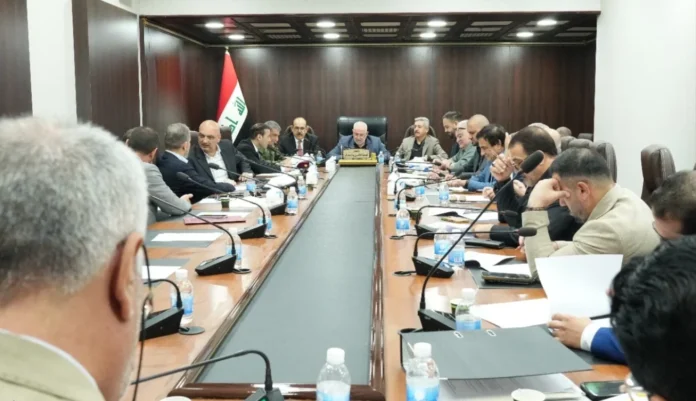Iraq’s reputation at risk grows as parliament debates a controversial law to restructure the Popular Mobilization Forces (PMF). This law aims to regulate the PMF’s structure, salaries, and retirement benefits. However, many critics warn it could severely harm Iraq’s standing both regionally and internationally. In fact, Iraq’s reputation at risk, reflects the widespread concern shared by experts and officials alike.
The PMF was formed in 2014 to fight ISIS, following a call to arms from Shiite cleric Ayatollah Ali al-Sistani. Since then, its role has evolved significantly. While the group helped push back ISIS, now it operates with less oversight. The law proposes to institutionalize the PMF under a government commission. Yet, some factions still operate independently and maintain strong ties to Iran. Moreover, several factions have targeted US personnel, which heightens tensions.
A former US State Department official warned that passing this law would deepen Iran’s influence in Iraq. Meanwhile, Washington fears that the legislation would empower armed groups accused of terrorism against US forces. Consequently, the US State Department labeled the bill a “deeply unhelpful step” that undermines Iraq’s sovereignty and existing security institutions.
Furthermore, the proposed law has divided Iraqi lawmakers. While some Shiite blocs support it to increase their political influence over the 250,000-member PMF, others oppose it. They argue the bill could weaken the group’s effectiveness and worsen regional instability. At the same time, the Kurdistan Regional Government (KRG) blames the PMF for recent drone attacks on oil infrastructure in Kurdistan.
In addition, budget disputes between Baghdad and Erbil have worsened the situation. Baghdad halted budget transfers to the Kurdistan Region, causing months-long salary delays. Meanwhile, the drone attacks caused a loss of 200,000 barrels per day in oil production. Therefore, both sides call for a fair investigation into these strikes to ease tensions.
The United States continues to pressure Baghdad to reduce Iranian influence. For example, it ended a waiver allowing Iraq to import Iranian electricity, signaling tougher measures. Also, Washington announced the end of its coalition mission against ISIS by September 2025. This move could reshape power dynamics among Iraqi armed groups.
In conclusion, Iraq’s reputation at risk becomes clearer as the PMF law debate intensifies. The country faces internal divisions and external pressures that threaten its future stability. Thus, lawmakers must carefully weigh security, sovereignty, and regional implications to protect Iraq’s standing.


